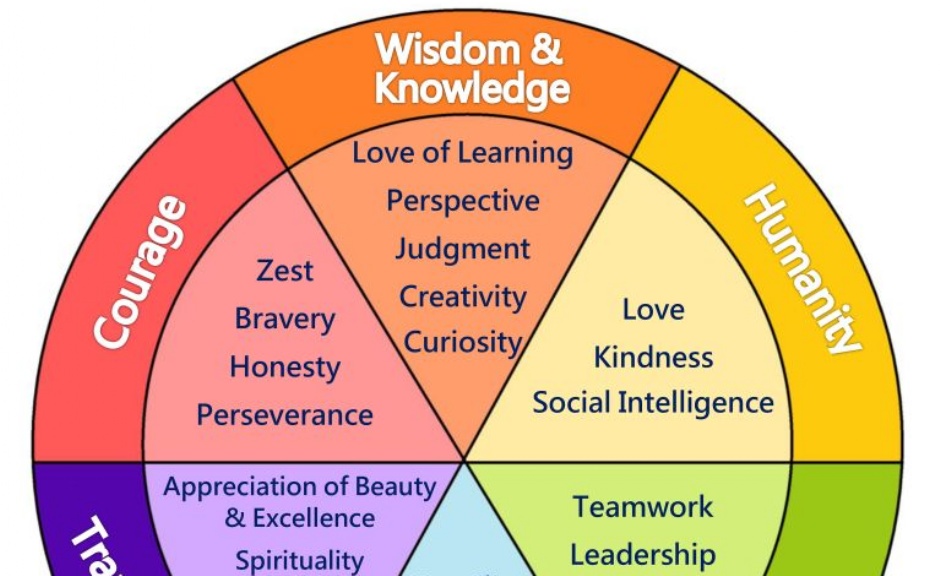A Strengths-based Approach to Education

There are few things more inspiring than meeting someone who is secure in their knowledge of themselves and their strengths.
They appear to enjoy a higher degree of life satisfaction and seem to understand the value of engaging in activities that make life worth living. Their passion for what they do is infectious, and it is seldom that one walks away not wishing that one could bottle some of the energy that they possess.
In my many years of working with children, I’ve found that when we focus on their weaknesses (a natural outcome in a system that over-assesses children) we tend to ignore so much of who they are. Think about it: How many times have one of your children come to you and said: ‘I’m not good at anything, and So-and-So are so much better at this than me’? We’ve created a culture of continuous weighing and comparison, which is not healthy for our children.
Positive psychology, developed by Martin Seligman and other pioneering psychologists, emphasizes building on human strengths rather than merely addressing weaknesses. This approach suggests that flourishing comes from nurturing what we are already good at and finding ways to apply these strengths in daily life. The concept of strengths in positive psychology is often categorized into virtues such as wisdom, courage, humanity, justice, temperance, and transcendence, which encompass various character strengths like creativity, bravery, kindness, fairness, and gratitude. There is a strong emphasis on an individual’s character strengths (who they are), rather than on what an individual can do.
Understanding our strengths increases self-awareness, which is a crucial ingredient for personal growth. It allows us to recognize what we naturally excel at and what activities energize us. This self-awareness fosters a deeper understanding of one's identity, helping us to make more informed decisions about our careers, relationships, and personal goals. Being self-aware is not the same as being self-conscious; the latter often causing us to shy away from others and from things that make us feel uncomfortable. Self-awareness on the other hand, enables us to walk towards ourselves, creating a more unified image of who we are in our own minds.
When we are aware of our strengths we are more likely to engage in activities that align with those strengths. This alignment leads to higher levels of engagement, motivation, and ultimately, success. When we work within our areas of strength, we tend to perform better and experience less stress and burnout. For example, if we are really good at relating to others we might be brilliant in roles that involve teamwork and communication, which leads to a greater sense of fulfilment.
Positive psychology posits that using one's strengths can enhance resilience and overall well-being. When we teach our children to focus on their strengths, it often leads to them developing a positive self-image and a sense of competence. This focus can buffer against stress and adversity, as they will then be able to draw on their strengths to navigate challenges. Moreover, if we teach them to engage in activities that utilize their strengths, it often leads to positive emotions, which are linked to greater life satisfaction and happiness.
Knowing and utilizing our strengths can improve our relationships. When we grow to understand our own strengths, we can also appreciate and acknowledge the strengths of others, fostering mutual respect and understanding. This recognition can lead to more supportive and harmonious ways of relating to each other. This is so important in a school setting, because mutual encouragement and respect are qualities that we need to actively nurture in our children. When children (and adults) are aware of their strengths, they are often more confident and authentic in their relationships, which can enhance connection and intimacy (attributes which are much-needed in our modern, tech-driven society).
Making our children aware of their strengths will have life-long benefits, especially when it comes to living a meaningful life. A greater sense of purpose is closely linked to how well our strengths match what career we may choose to pursue. By identifying and capitalizing on their strengths, we can encourage our children to pursue careers that are not only fulfilling but that also allow them to excel. Employers are increasingly recognizing the value of strengths-based approaches, leading to better job placements and development opportunities that align with prospective employees' natural talents.
If you are interested in learning more about your own, or your child’s character strengths, you can register an account at the flowing link: Personality Test, Personality Assessment: VIA Survey | VIA Institute (viacharacter.org). Once you have registered you will be able to choose either a Character Strengths test for adults or youth. It’s free, and may provide you with some interesting insights.
Craig Cuyler
Director of Wellbeing/Head of PSHEe/
Deputy DSL/ Assistant Housemaster







